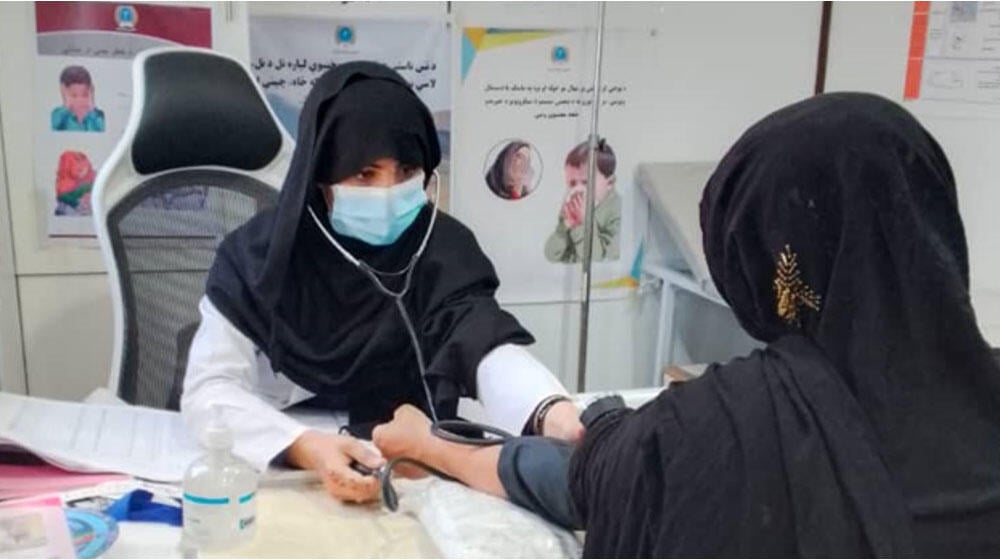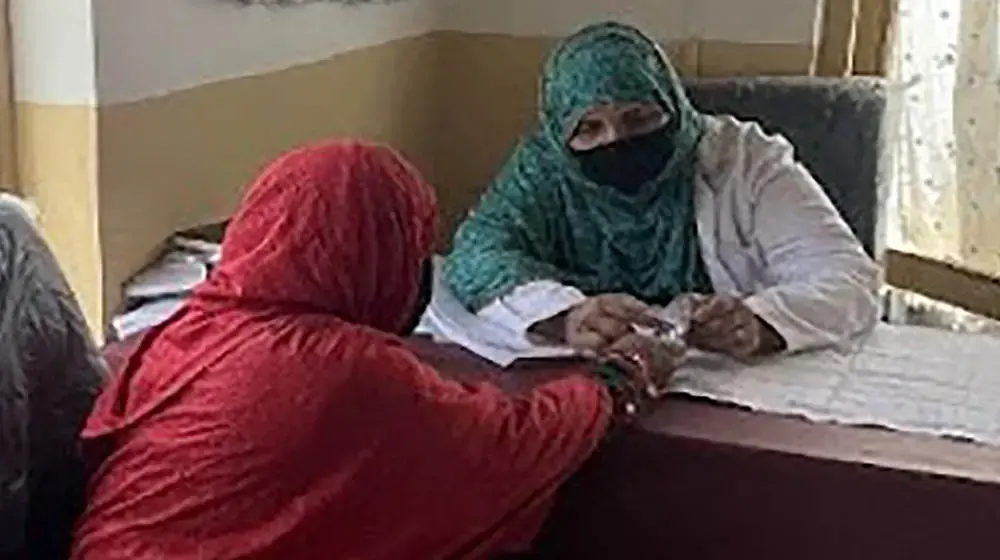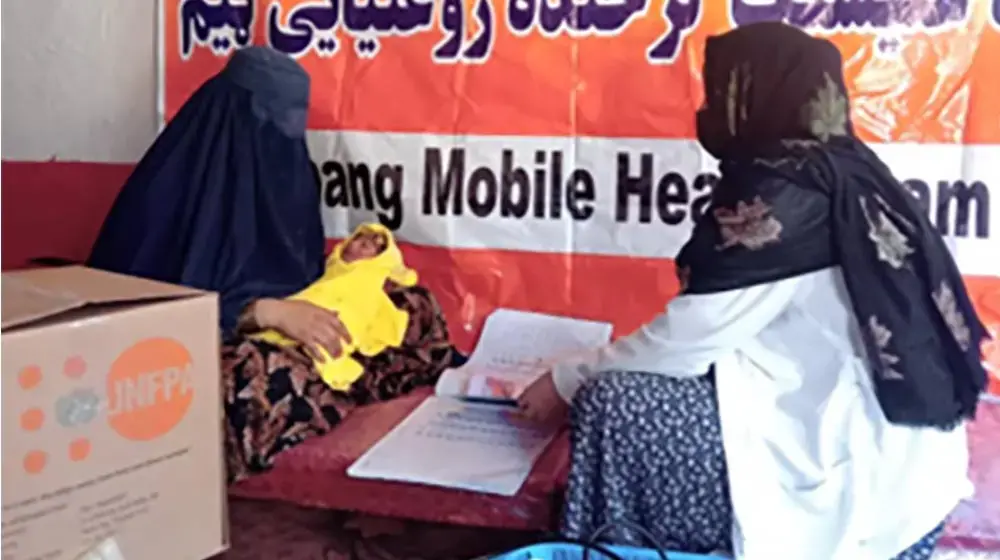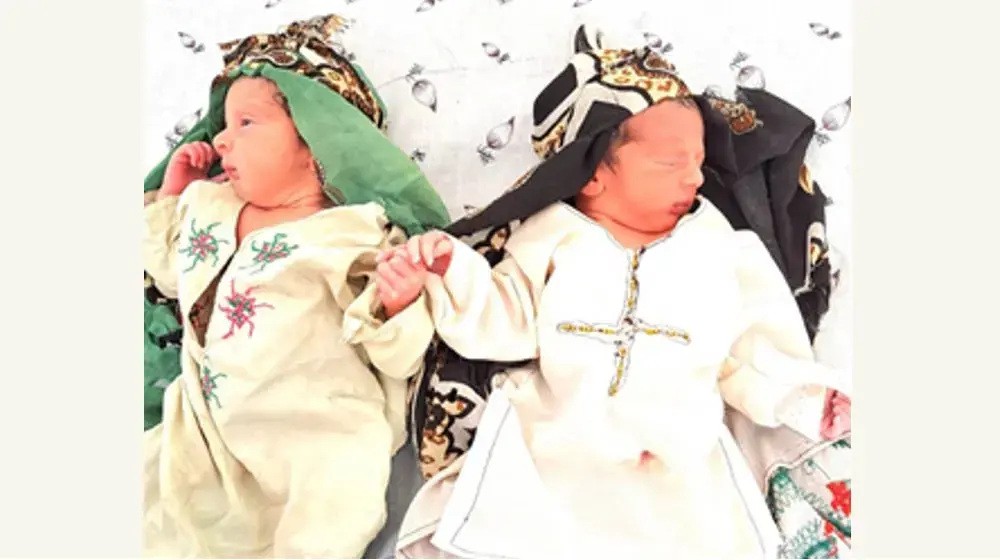Paktya, Afghanistan – Thirty-three-year-old Ghotai, a mother of seven daughters, faced family pressure to have a son due to the cultural preference for sons in many Afghan communities, where having a son is seen as vital for a family's success.
However, the strain of having many children, worsened by poverty, led to a decline in Ghotai’s health over the years. Furthermore, the absence of a son and her persistent health issues negatively impacted her mental well-being as the issue had been raised by the siblings.
Her husband, a farmer, sustains the family by leasing two plots of land for crop cultivation. Despite their hard work, they continue to face economic pressures, adding more strain to their daily lives.
Due to the cultural preference for sons, Ghotai became pregnant for the eighth time. At 33 weeks into her pregnancy, she met Fatima, a midwife of the Mobile Health Team (MHT) supported by the UNFPA, who assisted her with maternal health services and helped her cope with her challenging circumstances.
Ghotai struggled with insomnia. "I was restless. I tried to sleep, but I couldn't. It felt like my feet were burning. Sometimes, I would stay awake until sunrise," she explained. "I began losing my temper more often and couldn't stand the children playing and making noise."
During her visit to the MHT in the village, Ghotai found comfort in the care of a dedicated midwife. "A neighbor was going to see the midwife and invited me to join her. I decided to take her up on the suggestion," Ghotai recalled.
After thoroughly assessing Ghotai's condition, the midwife diagnosed her with pre-eclampsia, noting that her pregnancy was marked by high blood pressure and body swelling. She offered crucial advice on managing her health through proper nutrition and care.
With compassion and expertise, the midwife explained the estimated delivery date and ensured Ghotai received essential medications and a mama and baby kit to ensure the safety and well-being of both mother and newborn after delivery.
Along with providing medicine and kits, the midwife and psychosocial counsellor of the MHT discussed various maternal health topics with her, including her mental well-being. "I felt reassured knowing the midwife would take care of me," Ghotai expressed with evident gratitude. "She advised me on hygiene, vaccinations, and when and how to seek urgent help if complications arise."
As Ghotai gets ready for the birth of her upcoming child, the caring assistance from the midwife supported by UNFPA, ensures that her experience is marked by knowledge and commitment. The crucial support from MHT in addressing her health issues has given her a fresh sense of optimism and self-assurance.





